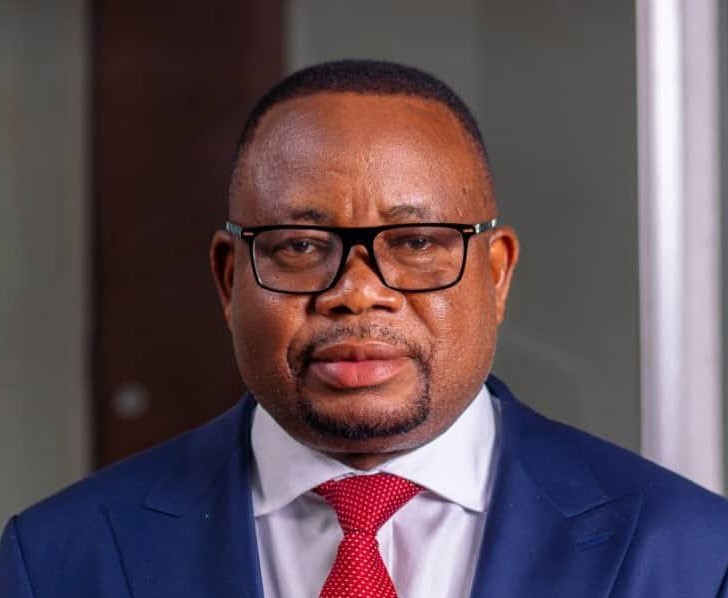Story by Justin Mahlahla
In an address at the 6th Edition of the Organisational Development Conference held in Harare this Thursday, the Minister of Skills Audit and Development, Professor Paul Mavima underscored the critical intersection between organisational transformation and national skills development.
The Minister framed human capital development as the cornerstone of institutional resilience in an era of unprecedented change.
The Minister’s address drew direct parallels between organisational development principles and his Ministry’s mandate. Established in September 2023 by President Dr. E.D Mnangagwa, the Ministry of Skills Audit and Development has embarked on an ambitious national mission to audit existing skills, identify critical gaps, and align training with Zimbabwe’s development priorities. Professor Mavima emphasized how this work mirrors the diagnostic approaches used by OD professionals in assessing organisational health, both requiring evidence-based strategies to bridge capability gaps.
“I strongly believe that as Organisational Leadership and Development Practitioners you have long understood that the true measure of an organisation’s health lies in its capacity to adapt, innovate, and grow. This vision resonates deeply with the mandate of the Ministry of Skills Audit and Development to ensure that the nation’s workforce is equipped with relevant skills to be agile and competitive in the face of tomorrow’s challenges. Our work, much like yours, is grounded in the belief that change, if managed intentionally, can be a catalyst for excellence and growth,” he said.
Leadership emerged as a central theme in the Minister’s remarks, with a compelling definition that transcended positional authority. “True leadership is rooted in integrity, empathy, and the ability to adapt,” he stated, positioning OD practitioners as crucial enablers of skills application within workplaces. The address highlighted how effective leadership creates environments where technical competencies meet opportunity – a synergy essential for national progress.
Detailing the Ministry’s achievements since inception, Professor Mavima outlined comprehensive provincial consultations across all ten provinces and twenty-nine economic sectors. These engagements revealed acute shortages in engineering, ICT, healthcare and renewable energy sectors, prompting innovative responses. The establishment of Industry-Academia Dialogues has created real-time feedback loops between educators and employers, while disability-inclusive assessments of TVET institutions are modernizing vocational training infrastructure. Collaborative digital skills programs with the Ministry of ICT are equipping Zimbabweans with cybersecurity and digital marketing competencies.
He said, “Since the establishment of our Ministry, we have embarked on a number of strategic initiatives to accelerate the development of skills for us to realize our national aspirations. We embarked on multi-stakeholder engagement drive covering all our 10 Provinces and 29 Sectors with the aim of mapping existing skills. The consultations highlighted gaps in critical sectors such as engineering, ICT, healthcare, renewable energy, manufacturing, and creative industries. We initiated Industry-Academia Dialogue as a platform for providing real-time insights on labour market demands, enabling education and training institutions and employers to respond quickly to skills shortages. We assessed TVET institutions for persons with disabilities and provided policy recommendations to modernise and re-equip Technical and Vocational Education and Training centres to make them responsive to industry needs. In collaboration with the Ministry of ICT, Postal and Courier Services and the private sector, we have rolled out training initiatives in digital literacy, cybersecurity, and digital marketing. We are working towards the establishment of a Techno Hub that will provide digital skills mentorship, business incubation and access to markets.”
 The Minister painted a vivid picture of future-critical skills, from AI and blockchain proficiency to climate-smart agriculture techniques. However, he stressed that technical abilities alone are insufficient without complementary soft skills like emotional intelligence and cross-cultural communication. Here, Professor Mavima positioned OD practitioners as the vital bridge between skills acquisition and workplace application – the “architects of capabilities” who transform policy into practice.
The Minister painted a vivid picture of future-critical skills, from AI and blockchain proficiency to climate-smart agriculture techniques. However, he stressed that technical abilities alone are insufficient without complementary soft skills like emotional intelligence and cross-cultural communication. Here, Professor Mavima positioned OD practitioners as the vital bridge between skills acquisition and workplace application – the “architects of capabilities” who transform policy into practice.
He proposed concrete collaboration frameworks between government, private sector and development professionals. The envisioned partnerships would co-invest in training infrastructure, prioritize inclusive participation, and ultimately create agile organizations capable of driving Zimbabwe’s Vision 2030.
“Let us work together, Government, private sector, academia, professional bodies, and other stakeholders to make a skills revolution a reality. Let us co-invest in training infrastructure and capacity building and promote inclusive skills development to ensure that women, youth, and disadvantaged communities are not left behind. Our Ministry is ready to work hand-in-hand with OD practitioners to build agile, future-ready organisations that can propel Zimbabwe towards Vision 2030 and beyond.”
The event also honoured exceptional OD practitioners who include the Rising Talent in OD Award won by Gaone Nikki Makoko of Botswana, the Cultivating Human Potential & Flourishing Award which went to Michael Moyo and the Indigenous Wisdom in OD Award won by Dr. William Brendel, among several others.
Brendel


